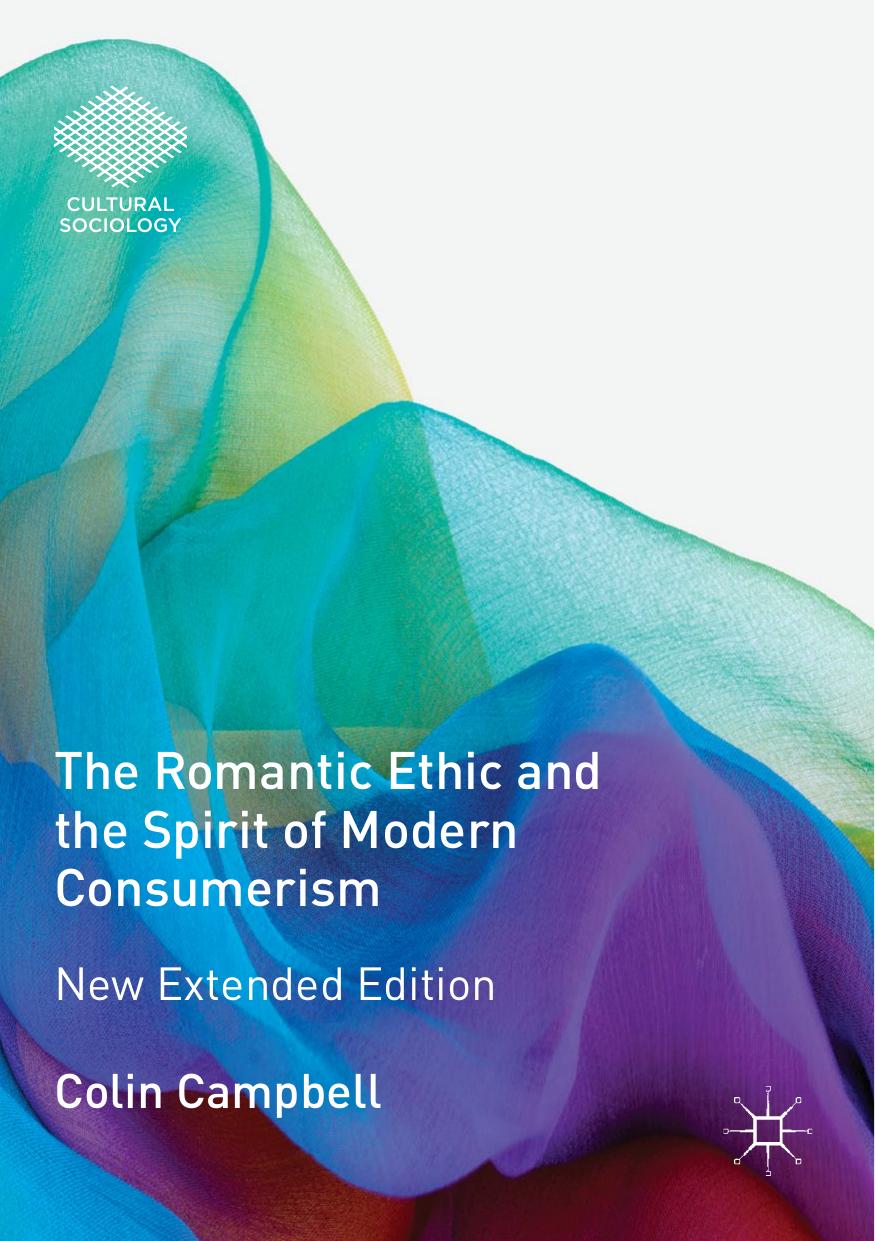The Romantic Ethic and the Spirit of Modern Consumerism by Colin Campbell

Author:Colin Campbell [Campbell, Colin]
Language: eng
Format: epub, pdf
Publisher: WritersPrintShop
Published: 2005-08-01T00:00:00+00:00
Judge for yourself; and as you find, report
Of wit, as freely as of beef or port;92
together with an anonymous reviewer in the Gentleman's Magazine in 1767, commenting on Tristram Shandy to the effect that: 'In questions of taste, however, every one must determine for himself; and what is humour is as much a question of taste, as what is beauty.'93 Certainly it was the case that popular taste was increasingly being catered for, whilst attempts to educate and improve the people in matters of aesthetic judgement, although not abandoned, were embarked upon with less and less hope of success as the century progressed.94 Such a trend might suggest that ideas about aesthetics would become irrelevant to public taste as individuals came to act more and more upon their personal pattern of preferences.
This was, indeed, one important strand in the cultural traditions which emerged at this time. Basically, this position treated Addison's analogy linking aesthetic and gustatory taste as an identity, such that all taste was considered a purely individual and subjective matter not open to general dispute. An individual's likes and dislikes, in art as much as food and drink, were thus personal and unchallengeable. Such a view was sometimes advocated out of a spirit of liberality and freedom; an assertion of consumer (and artistic) freedom in response to those who sought to dictate what good taste should be.95 As it was usually associated with the doctrine of innate and intuitive taste, however, it also tended to become, in effect, no more than simple philistinism. For, by excluding knowledge or judgement from any significant role in the formation of individuated taste, this position amounted to the familiar cry of, ‘I may not know much about art, but I know what I like’, This exclusion of judgement from any part in the formation of taste was a widespread element in both middle-and working-class cultures in the late eighteenth and early nineteenth centuries, finding its intellectual expression in utilitarianism. Bentham, in his famous passage about push-pin and poetry, dismisses the distinction between 'good' and ’bad' taste as no more than a matter of custom and prejudice, and although he subsequently reintroduces it, it is only in relation to purely instrumental values. Thus, in effect, he completely de-aestheticizes the concept of taste.96
Contrary to first impressions, however, such a perspective is not especially favourable to modern consumerism, for, whilst it upholds the principle of consumer sovereignty in an extreme form, it does so at the expense of the system's essential dynamic. Taste as an ethical and aesthetic concept is indispensible to consumer behaviour, both to facilitate choice and to ensure the generation of new wants, and hence attempts to reduce it to some other dimension of experience merely promotes traditionalism. The utilitarians tried to make consumption entirely an issue of rational choice in the matter of satisfying needs, thereby seeking to eliminate the ingredient of desire entirely. Since this is an impossibility all that is actually achieved is the endorsement of whatever aesthetic values
Download
The Romantic Ethic and the Spirit of Modern Consumerism by Colin Campbell.pdf
This site does not store any files on its server. We only index and link to content provided by other sites. Please contact the content providers to delete copyright contents if any and email us, we'll remove relevant links or contents immediately.
International Integration of the Brazilian Economy by Elias C. Grivoyannis(106925)
The Radium Girls by Kate Moore(12001)
Turbulence by E. J. Noyes(8001)
Nudge - Improving Decisions about Health, Wealth, and Happiness by Thaler Sunstein(7676)
The Black Swan by Nassim Nicholas Taleb(7086)
Rich Dad Poor Dad by Robert T. Kiyosaki(6573)
Pioneering Portfolio Management by David F. Swensen(6267)
Man-made Catastrophes and Risk Information Concealment by Dmitry Chernov & Didier Sornette(5978)
Zero to One by Peter Thiel(5760)
Secrecy World by Jake Bernstein(4724)
Millionaire: The Philanderer, Gambler, and Duelist Who Invented Modern Finance by Janet Gleeson(4441)
The Age of Surveillance Capitalism by Shoshana Zuboff(4264)
Skin in the Game by Nassim Nicholas Taleb(4223)
The Money Culture by Michael Lewis(4168)
Bullshit Jobs by David Graeber(4161)
Skin in the Game: Hidden Asymmetries in Daily Life by Nassim Nicholas Taleb(3972)
The Dhandho Investor by Mohnish Pabrai(3739)
The Wisdom of Finance by Mihir Desai(3714)
Blockchain Basics by Daniel Drescher(3564)
